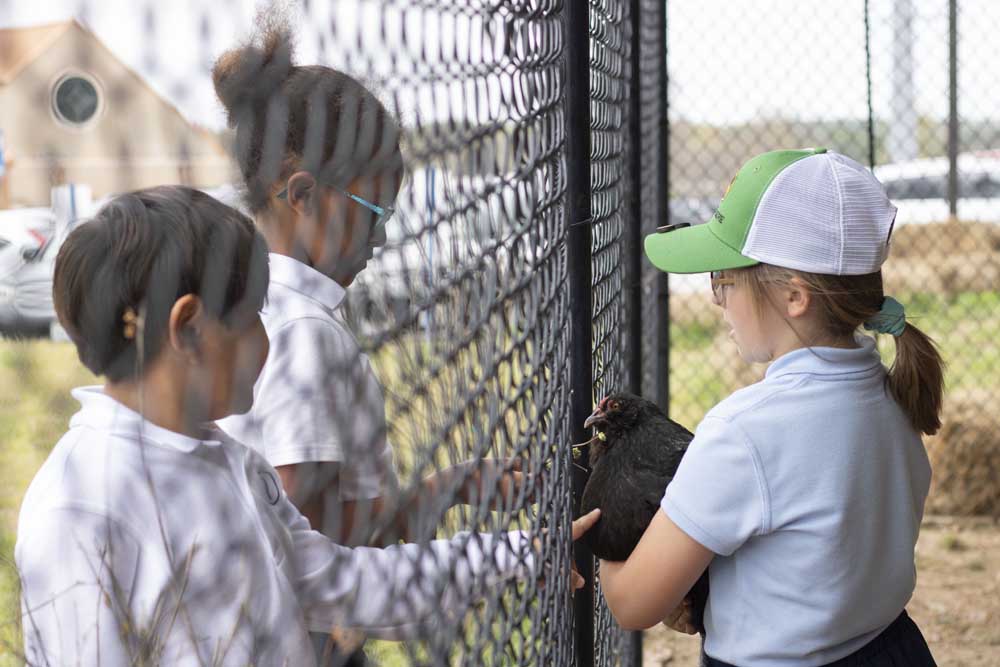Student-led farm allows youth to learn about entrepreneurship though egg sale, growing vegetables
Published 5:05 pm Tuesday, March 29, 2022

- Third grade students at All Saints Episcopal School pet chickens, which are part of the campus’ student-led farm. The students hold an egg sale annually to help raise funds for the farm.
Students at a local school are learning the ins and outs of the real-world farming industry at their campus farm.
All Saints Episcopal School students in preschool through fourth grade have started the spring planting for their campus student-led farm, which consists of 20 plots with a variety of vegetables and herbs along with a chicken coop.
The farm, which will be growing tomatoes, zucchinis, squash, peppers and more, was started in 2017 and has become a full responsibility for students. The initiative not only teaches the students farming lessons, but also teaches them entrepreneurial skills.
Besides harvesting, planting and maintaining the crops throughout the year, students also take care of 16 chickens by feeding and watering them, gathering their eggs, putting hay in their cubbies and keeping them happy so they lay eggs. The students later sell the eggs as part of an annual fundraiser.
Anna Dickey, science specialist for early learning and lower school, said the students look forward to growing the crops and being involved in the process, especially because the food being grown is used for their meals served in the cafeteria.
“They love it. They are excited to see what plants we’re going to put in. It’s exciting for them to get to have a part in it so they can see the food that the chef prepares in the cafeteria is from the farm, and how it starts from planting the sprout to all the way in your tray in the cafeteria,” she said.
Michael Brady, director of food service, is responsible for all food prepared on campus and considers the farm a entrepreneurship lesson for students.
Brady said students also learn marketing skills, as they must sell him the produce they’ve grown. They research and learn how to properly price produce then how to market it to clients. Brady said this allows students to get a real-world look at the produce and farming industry.
It isn’t always an easy sell for the students, as Brady only “buys” the produce if it is acceptable for purchase and consumption. The realistic expectation prepares students for the real world, he said.
Although all grades are involved in the farm, different grades have certain duties.
First graders incubate the chicks while second graders are the chicken farmers who take care of the animals and hold the egg sale. Fourth grade students are in charge of fully taking care of the farm.
“We’re mock running a business and trying to hit every education note along the way, so it’s super cool and very neat,” Brady said. “The structure of the farm is very important, how we allocate each plot to the class is a very important lesson but also a necessity for the upkeep of the farm.”
Brady said second graders will be leading the annual egg sale which will will allow parents or other supporters to buy eggs for $6. It is a business plan set up by students, who must also create a business logo, name and invoice. Funds raised from the sale allow the students to give back to the farm by helping to pay for fees and materials.
Brady said the farm is a constant learning lesson for kids and said it has become an important asset of the campus.
“We’re always learning. I’m still learning how to set up the organization of this because we want it to be the gift that keeps giving and we want it to be this environment that can keep teaching lessons which are endless but have that structure as well,” he said.
Other items being grown at the farm’s garden include broccoli, cauliflower, kale and collard greens which are expected to be planted in the year.






